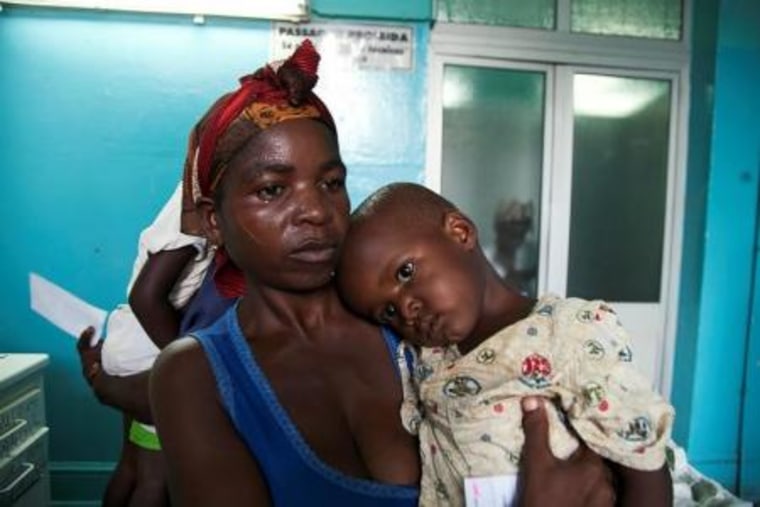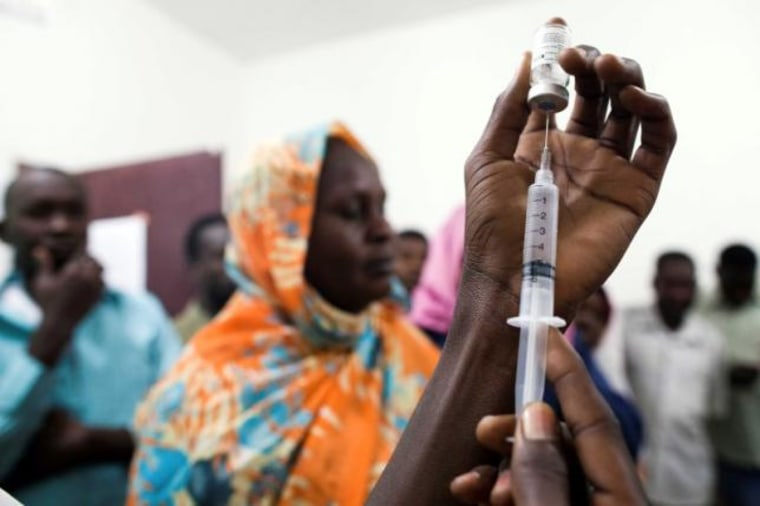World Health Organization advisers have agreed in principle to dilute the yellow fever vaccine in order to stretch out supplies if current outbreaks get worse.
It would be a desperate measure to save lives from the often-deadly virus, carried by mosquitoes and found in many tropical areas.

"The yellow fever vaccine given as one fifth of the regular dose could be used to control an outbreak in case of vaccine shortages" the WHO said in a statement.
More than 3,000 cases of yellow fever have been reported in Angola and 345 people have died.
“The yellow fever vaccine given as one fifth of the regular dose could be used to control an outbreak in case of vaccine shortages."
And more than 1,000 suspected cases are reported in the Democratic Republic of the Congo, with 71 deaths. A few cases have also been reported in Kenya and China, carried by travelers. In a separate outbreak, 30 people have been infected and seven have died in Uganda.
Brazil, Chad, Colombia, Ethiopia, Ghana and Peru also have yellow fever circulating.
Yellow fever is a relative of dengue, Zika and chikungunya but is far deadlier. It’s also the only virus in the family that has a good vaccine to prevent it. It’s paid for by the nonprofit Gavi vaccine alliance.
"Yellow fever outbreaks in Angola, Democratic Republic of the Congo and Uganda are placing unprecedented demands on vaccine supply for emergency vaccination campaigns to control the spread of the disease,” said Jon Abramson, chair of the WHO Strategic Advisory Group of Experts (SAGE) on Immunization.
"There is not yet enough data available to show that lower doses would confer the life-long protection provided by a vaccination with one full dose.”
"Right now we have enough vaccines in the global stockpile to cope with the ongoing outbreaks if there are no further extensions. However, given the wide spread of the disease in Angola and the potential for it to get out of control in the city of Kinshasa, in the Democratic Republic of Congo, WHO and partners are seriously considering the use of this dose-sparing strategy to prevent transmission through large-scale vaccination campaigns."
Despite vaccination drives, the virus is still spreading. It cannot be eradicated since it not only infects people, but monkeys and other animals too, so the mosquitoes that spread it can be re-infected even if the population’s vaccinated.
"WHO Strategic Advisory Group of Experts (SAGE) on Immunization reviewed existing evidence that demonstrates that using a fifth of a standard vaccine dose would still provide protection against the disease for at least 12 months and possibly much longer," the WHO said.
“This approach, known as fractional dosing, is under consideration as a short-term measure, in the context of a potential vaccine shortage for use in emergencies. This approach is not proposed for routine immunization, as there is not yet enough data available to show that lower doses would confer the life-long protection provided by a vaccination with one full dose.”

